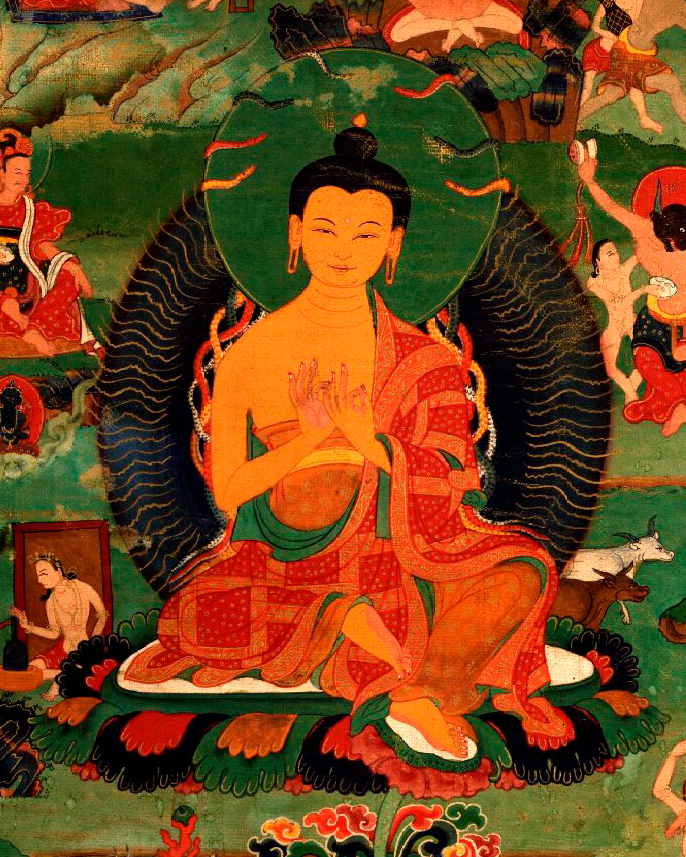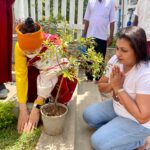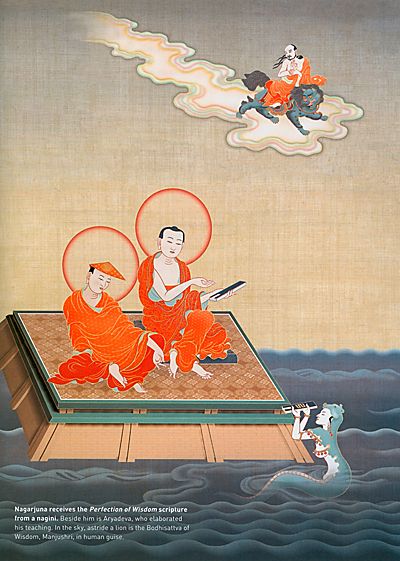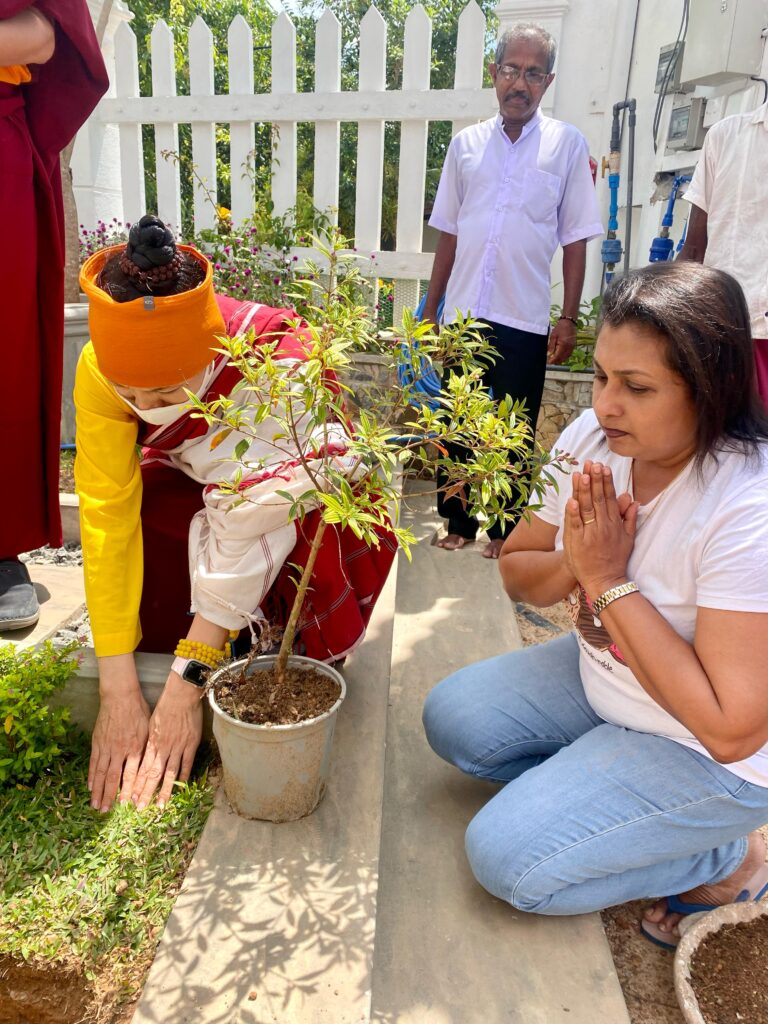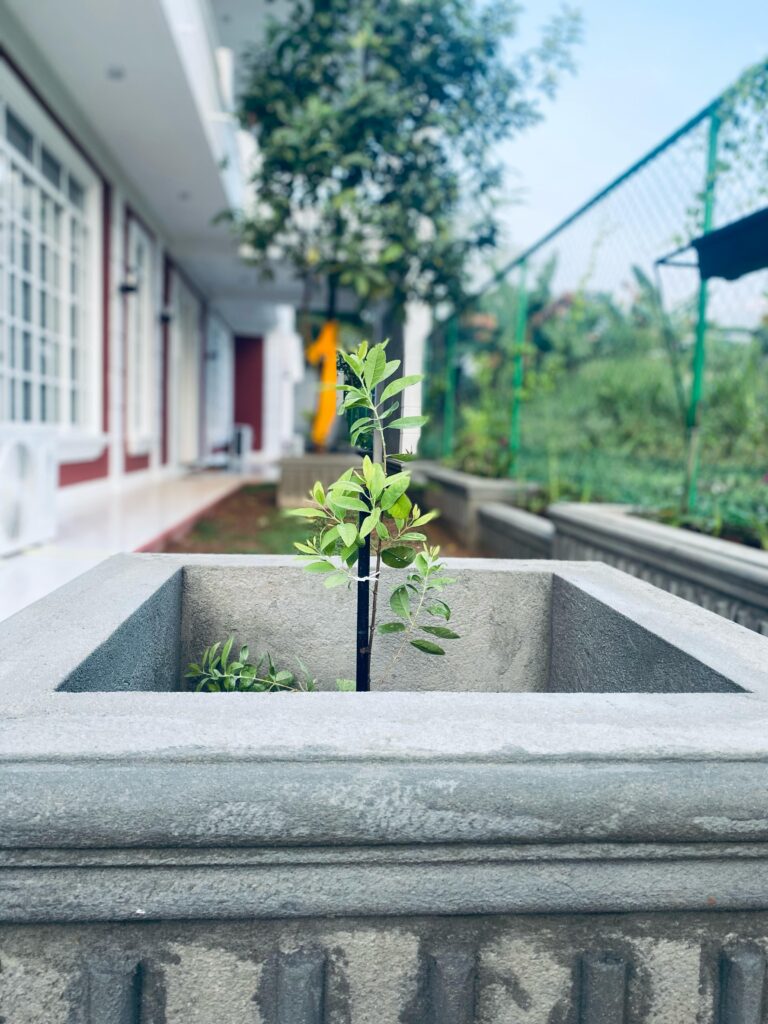His Holiness the 14th Dalai Lama stated in the Praise of Seventeen Nalanda Scholars: རྒྱལ་བའི་ལུང་བཞིན་ཐེག་མཆོག་དབུ་མའི་སྲོལ། །You brilliantly clarified the meaning of reality itself, the ultimate intent of the mother Prajnaparamita, འབྱེད་མཛད་ཀླུ་སྒྲུབ་ཞབས་ལ་གསོལ་བ་འདེབས། །With profound modes of logical reasoning based on Dependent Origination, རྒྱལ་ཡུམ་དགོངས་དོན་མཐའ་བྲལ་དེ་ཉིད་དོན། །Founder of the Middle Way tradition of the supreme vehicle, prophesied by the …
His Holiness the 14th Dalai Lama stated in the Praise of Seventeen Nalanda Scholars:
རྒྱལ་བའི་ལུང་བཞིན་ཐེག་མཆོག་དབུ་མའི་སྲོལ། །
You brilliantly clarified the meaning of reality itself, the ultimate intent of the mother Prajnaparamita,
འབྱེད་མཛད་ཀླུ་སྒྲུབ་ཞབས་ལ་གསོལ་བ་འདེབས། །
With profound modes of logical reasoning based on Dependent Origination,
རྒྱལ་ཡུམ་དགོངས་དོན་མཐའ་བྲལ་དེ་ཉིད་དོན། །
Founder of the Middle Way tradition of the supreme vehicle, prophesied by the Buddha himself,
རྟེན་འབྱུང་རིགས་ཚུལ་ཟབ་མོས་གསལ་མཁས་པ། །
Noble master Nagarjuna, to you I pray.
The noble Nāgārjuna, praised in hundreds of sūtras and tantras, was born into a Brahmin family in Videha, Southern India, in the first century, four hundred years after the passing of the Buddha. Astrologers predicted that he would live only seven days. Seeking a solution, it was advised that if he received teachings from a Brahmin, he would live for seven months, and if he received teachings from a Bhikshu, he would live for seven years. With no other options, as the seven years drew to a close, his parents, unable to bear the thought of their son’s imminent death, sent him with some assistants to roam outside.
He met Nalanda Master Saraha and explained his life story to him. Saraha said, “If you become a monk, there is a way.” He was then empowered into the mandala of Amitayus, the Destroyer of the Lord of Death, to liberate himself from the obstacles of the Lord of Death. Nagarjuna became a renowned scholar in the ten major sciences and in the vehicles of Hinayana and Mahayana. He listened to many teachings of Guhyasamaja and other Vajrayana practices. He received full ordination from the same master and was given the name ‘Bhikshu Palden’.
He studied all three baskets of training and the four sets of Tantra, receiving many profound and extensive instructions from Lodrö Rinchen, who took the form of the son of the god Mañjughoṣa. Nagarjuna mastered all the topics of the secret mantras.
During a famine, monks from Nalanda were struggling for their livelihood and survival. Urged by Rahulabhadra, Nagarjuna prepared alchemical elixirs and saved the monastic community from famine. In recognition of his service, he was appointed as the secretary of the Sangha for twelve years.
He expelled many whose training discipline was corrupt, and those who were fortunate, he taught three baskets of training, also purifying the Vinaya teaching.
As request by the king of Naga, he visited to the Land of Naga and taught the Dharma to the powerful nāgas, also the guardians of the white directions. He brought the Prajnaparamita-sutra in one hundred thousand verses to the human world. He wrote the Six Collections of Madhyamaka reasoning, which explicitly delineates the stages of emptiness. He cut off the movement of all bad speech that denigrates the Great Vehicle. He founded the chariot-way of Madhyamaka.
As Tara Devi had predicted, he traveled to South India, Nagarjuna Konda to practice meditation. He kept his main disciple Aryadeva and other disciples and taught them many Sutra and Vajrayana teachings. Particularly, he composed the Dharmadhātustava and other works.
He established many monastic estates for communities of monks and built many stupas where people could accumulate merit and virtue. He wrote the key text like Madhyamaka-Karika, restoring the philosophical view of emptiness once again. His kindness was akin to that of a second Buddha appearing on earth.
Particularly, he also composed many other textbooks such as commentaries on Guhyasamaja’s Concise Sādhana and Mixing the Sutras, the Commentary on the Rice Seedling Sūtra, the Collection of Praises, The Collection of Discourses, The Six Collections of Reasoning, and the Eighth Preparation. He also authored Treatises on the System and the Drop of Nourishment for Beings.
Get in Touch with Us
We’d love to hear from you—share your thoughts or ask a question!

